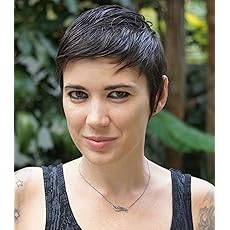The Adventure of the Peculiar Protocols: Adapted from the Journals of John H. Watson, M.D.
Minotaur Books, 2019
ISBN-13: 978-1250228956
Available: Pre-order, hardcover, Kindle edition, audiobook, audio CD
I’m not sure what genre exactly this book fits. As a Sherlock Holmes pastiche, it by rights should be in the mystery genre. It is solidly grounded in history, although the author notes that not all the dates fit. It might be considered political fiction. But while I wouldn’t call it horror, for me, it was disturbing and terrifying. The plot concerns what is probably the last case Meyer will write for Holmes (he’s written several, starting with the brilliant The Seven-Per-Cent Solution), and begins in 1905, with Sherlock’s older brother, Mycroft, who works for the Foreign Service, approaching him to ask him to determine the authenticity of a document that a woman died to get her hands on. The document? A French translation of what is known today as The Protocols of the Elders of Zion, an anti-semitic screed that claims that there is a secret cabal of Jews meeting regularly and trying to take over the world. The first version of this document was published in the years just before the story takes place, and in the novel, its origins and authenticity are unknown.
On a personal level, I cannot even begin to tell you how it made me feel to read of fictional characters I have known and loved since I was a teenager discuss whether this could be authentic. (spoilers start here) Of course, Sherlock quickly deduces that it is a fraud (because it makes no logical sense that a secret cabal would announce itself) but Mycroft informs him that in fact Jews have been meeting yearly in Basel, Switzerland (this is the Zionist Congress, spearheaded by Theodor Herzl, which is working towards establishing a Jewish homeland in Palestine). Could this be related?
Zionism and the historical foundation and location of Israel in Palestine are touchy subjects and Meyer handles them well, sending Holmes and Watson to interview a number of Jews in England who have differing viewpoints, who include Chaim Weizmann, the future first president of Israel, and writer Israel Zangwill, who favors assimilation. Continued discussions between Holmes and Watson, and Watson’s own musings, on the authenticity of the document and the likelihood that Jews might actually be involved in some kind of conspiracy, were enough to make my stomach ache even though they were in agreement before long that the document was a fraud intended to stir people to anti-semitic acts, and well before the friends traveled to Russia to root out the truth firsthand. On reading a passage by Mark Twain, which presumably is supposed to be complimentary, Watson realizes it could be read the opposite way as well, and notes:
Having seen portions of the Protocols, a dark corner of my mind found itself wondering if the Jews were as noble and noteworthy as Twain described them. I confess I have never given Jews much thought… But now, in the stillness of the night… I was mortified to find myself wondering if, despite all logic and probability, there might not be some grain of truth in the Protocols… The scurrilous pages had already begun their insidious work, tunnelling their way into my poor, addled brain.
Of course, history tells us that Holmes and Watson, despite their thrilling and mind-altering adventure here, failed to keep the lies from spreading. It’s quite clear from the author’s repeated statements about lies being accepted as facts and people believing what is most comfortable to believe, especially when they need a scapegoat, that his story has been significantly shaped by the current presidential administration. As a reviewer, I think this made a considerable difference on how Holmesian the story actually was. Holmes rarely made the kinds of deductions he typically does in his stories, or referred to his expertise: he was much more emotional and less creatively resourceful. Watson, of course, is Watson, the faithful chronicler, but he also interjects himself into the narrative more frequently. The long separation between the two left the relationship somewhat rusty as well. While still grounded in Holmes’ world, it almost feels like this is less a story of Holmes and Watson and more a warning for us, the readers now…. certainly, a timely one. Meyer is a brilliant writer for carrying the story off. Here, Sherlock discovers, the world is smaller than he thought, and the political is very personal.
I think Meyer’s choice to focus on The Protocols of the Elders of Zion was interesting and unusual, and he brought some mostly unknown history and historical figures to light for many readers (I really loved how grounded in history and how vivid and real the setting and historical characters were). But while I recognize the need for the discussions of the possibility that this was an authentic document, I worry that, as with Watson’s thoughts following his experience with the Protocols, readers will instead take the opposite message away from the book.
Contains: references to murder and rape, threats of violence, anti-semitic remarks.







Follow Us!